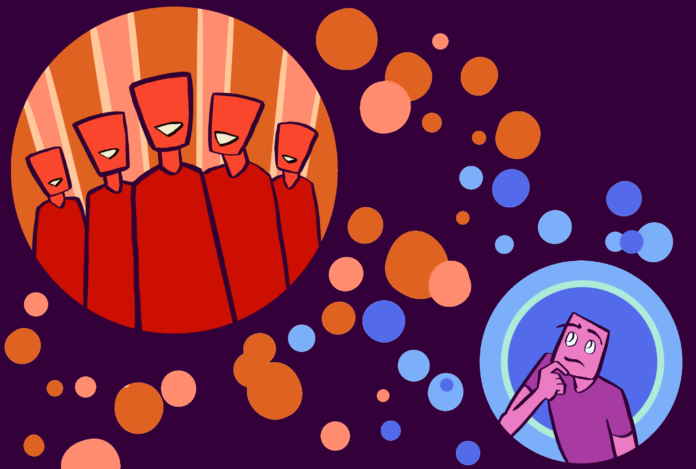This semester, like most first-year students, I joined every possible club I could, including each affinity group that was applicable to me. Being Korean and Taiwanese, I signed up for the Korean Students Association, the Taiwanese Students Association and the Asian American Mentor Program (AAMP).
When my AAMP group met for the first time a couple of weeks ago, I sat quietly at the dinner table, feeling a bit awkward and misplaced. There were over half a dozen other students — all cool in their own ways, all excited to be at dinner together — yet we kept running out of things to talk about.
I felt like we had been shoved together, expected to be friends because we fell into this general category: “Asian American.”
Still, AAMP has been a positive shift from my upbringing, and I’ve enjoyed getting to talk to upperclassmen and other students that I might have never met if not for the group.
Growing up, I was part of a predominantly Korean church and attended a racially diverse school. While I was never self-conscious of my race at church, I was self-conscious of who I was as a person.
Unlike the majority of kids at church who had immigrant parents, I was third-generation Asian American, wasn’t fluent in Korean and felt more of the “American” than “Korean” in Korean American.
Though I tried to find community within my church, joining Bible study groups and trying the Sunday evening Korean classes, I felt somewhat ostracized from the rest of the congregation. Even though we were all Korean, it seemed like I couldn’t connect with my pastors and peers over shared experiences.
Meanwhile, my high school made a point of emphasizing racial diversity, mandating workshops and holding space for affinity groups. I remember being both amazed by the number of resources and a bit disoriented by this new mentality.
Race felt omnipresent, reflected in our English class literature and evident in the high number of volunteers for student-led diversity workshops. In my first year of high school, I didn’t even bother to join the Asian Student Union (ASU). Most people, even other ASU members, assumed that I was in the club anyway.
But when the ASU held its all-school convocation, I sat in the audience feeling uncomfortable and judged for not being on stage. By sophomore year, I was the first name on the ASU list.
In a discussion about being a minority that my high school facilitated between teachers and students, I remember sitting quietly, content listening to other students share their stories. But afterward, an Asian classmate got upset at me, asking, “Why didn’t you speak?”
“While terms like ‘Asian American’ unite us, they also lump us under one racial category.”
I felt this pressure to speak on behalf of all Asians when, at the same time, I couldn’t completely identify with or even understand the Korean subgroup at my church.
California is a pretty diverse place, and the 5Cs offer a plethora of inclusive communities and safe spaces. While these places to share our experiences are certainly beneficial for many students, I’ve found that affinity groups can feel exclusionary on the inside.
As a speaker at one of my high school diversity conferences noted, “Race is the first thing people see you as.” While terms like “Asian American” unite us, they also lump us under one racial category.
I’m Asian – half Korean, half Taiwanese – and you could probably tell that just by looking at me. My family has an intricate history that I shouldn’t lose, nor should the generations after me. But I was born in the United States and don’t speak any Asian languages, so what does my being Asian tell you about me?
I have enjoyed finding solidarity with other Asians in affinity groups, but sometimes I feel a little tired of having to identify as Asian American all the time. I’m not just my race; I’m a student, writer, musician, Marylander and Trader Joe’s fanatic.
And I worry that if I try to be more “Asian” in circles other than affinity groups, that’s all I’ll be seen as.
For those also wondering where they can find their perfect community or identity, know that there are others searching too. Words like “Asian American” are umbrella terms that don’t always provide the full context for who we are as humans. As evidenced by AAMP, people who are similar in some ways are wildly different in others.
All I can say is we don’t always have to fulfill a certain expectation — one placed on us by ourselves or others.
Ellie Chi PO ’28 is from Clarksville, Maryland. Her New Year’s resolution is always to be more honest, and she honestly really enjoys reading “The Catcher in the Rye.”

